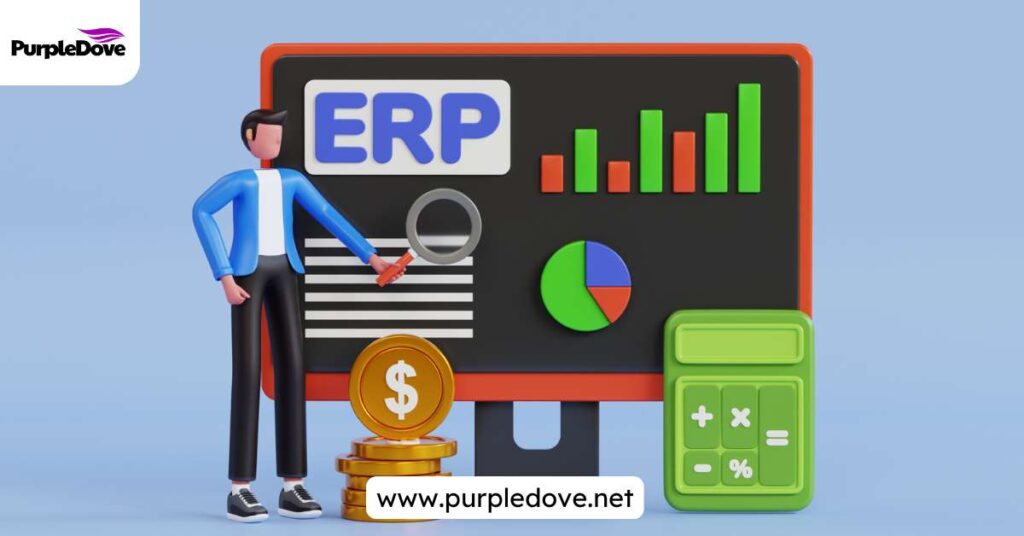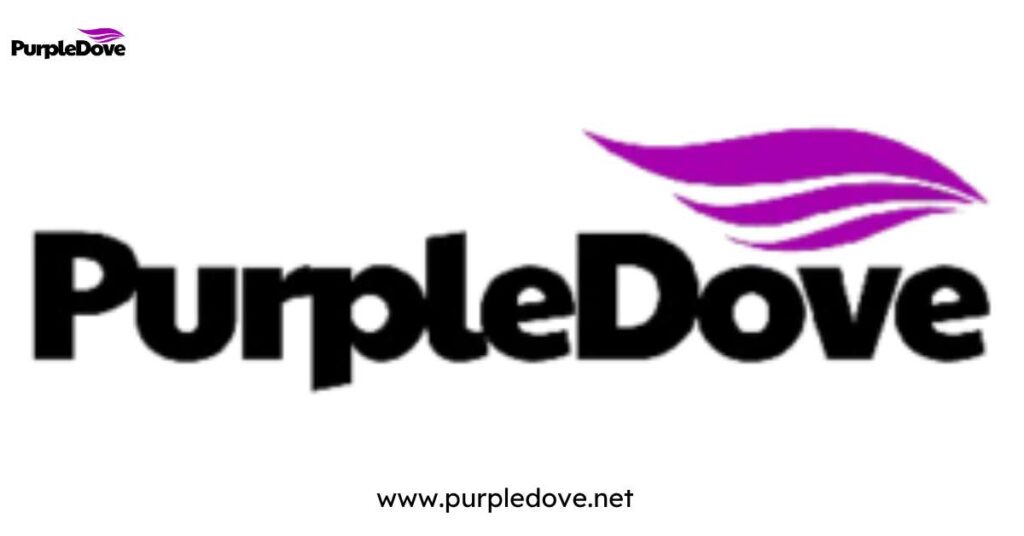Accounting and finance teams are under more pressure than ever in this digital era. They’re expected to produce accurate reports in record time, meet strict regulatory standards, and support decision-making with real-time insights. Outdated spreadsheets and disconnected systems just don’t cut it anymore. That’s where ERP systems come in.
According to a 2023 Deloitte survey, nearly 78% of (Chief Financial Officers) CFOs said they were increasing investment in financial technology, with ERP systems being a top priority. The right ERP system doesn’t just make the finance department more efficient; it helps shape the way the whole business works. But with so many options, how do you know which one is the best ERP solution for accounting and finance in 2025?
Let’s break it down.
Why Finance and Accounting Teams Need a Modern ERP in 2025

Today’s finance teams face a unique set of challenges: global operations, multiple currencies, frequent policy updates, remote auditing, and pressure for faster reporting. A modern ERP system centralises data, reduces manual entry, and ensures consistent, compliant financial practices across the board.
ERP systems are no longer just nice to have; they are essential tools that empower finance departments to:
- Save time on repetitive tasks like reconciliation
- Improve financial accuracy
- Ensure better audit readiness
- Create fast, detailed reports for leadership and stakeholders
In short, the best ERP solution for accounting and finance helps companies keep up and stay ahead.
Key Features to Look For in the Best ERP Solution for Accounting and Finance
- Real-Time Financial Reporting
Real-time visibility into cash flow, profit margins, and budgets helps leaders make informed decisions quickly. A good ERP system provides customisable dashboards and reports you can trust. - Automated Journal Entries & Reconciliation
Automation reduces errors and saves countless hours. Look for an ERP that automatically reconciles bank statements, flags discrepancies, and posts recurring entries. - Regulatory Compliance Tools
Staying compliant is tough—especially across different countries. The best ERP solution for accounting and finance should come with built-in tools to help track VAT, corporate taxes, audit trails, and evolving regulations. - Multi-Currency and Multi-Entity Support
If your business deals with different currencies or operates across regions, your ERP should support conversions, consolidation, and local tax laws. - Budgeting and Forecasting
An effective ERP helps with planning too. It should allow you to create budgets, track them in real time, and adjust forecasts as you go. - Secure Role-Based Access Control
Finance data is sensitive. Your ERP should have role-based access, meaning only the right people see the right data—no more, no less. - Bank Integrations and Payment Automation
Direct bank feeds, automated payments, and payroll integration make your life easier. Choose an ERP that cuts down manual processes. - Mobile Access for Finance Teams
In a hybrid work environment, being able to access the system securely from anywhere is vital.
We wrote an extensive post on some game-changing features of an ERP system. Read it here.
Cloud vs On-Premise ERP: What Works Best for Finance in 2025?
In 2025, more businesses are shifting to the cloud. Cloud-based ERP systems offer scalability, regular updates, and cost flexibility. They also allow for remote access and stronger data backups. On-premise systems may offer more control for some businesses but often come with higher upfront costs and maintenance.
If your finance team values flexibility and minimal IT stress, cloud-based solutions are often the smarter choice.
How to Choose the Best ERP Vendor for Finance and Accounting
- Industry Experience: Has the vendor worked with companies in your industry?
- Customer Support: Is help available when you need it?
- Implementation Process: How long does setup take?
- User Training: Will your team be comfortable using it?
- Integration Capability: Does it work with your existing payroll, HR, or CRM tools?
- Customisation: Can it scale with your company’s growth?
When choosing the best ERP solution for accounting and finance, don’t just look at features. Ask about user reviews, implementation time, and ongoing costs.
Top 5 Best ERP Solutions for Accounting and Finance in 2025
Choosing the right ERP system for your finance and accounting needs is more than just ticking off a checklist. It’s about finding a tool that fits your current structure, helps streamline operations, and scales with your business. Below are five standout ERP solutions for accounting and finance in 2025, each offering unique strengths depending on your size, structure, and growth ambitions.
1. PurpleDove ERP

For: SMEs and growth-focused businesses seeking simplicity and strong finance tools
PurpleDove ERP is a rising favourite among small to mid-sized businesses for good reason. Built with simplicity and flexibility at its core, it offers a full suite of financial management features without the bloated complexity of some larger systems. It includes:
- Expense tracking
- Payroll automation
- Budgeting and forecasting
- Asset and Inventory Management
- Human Resources and CRM
One of PurpleDove’s biggest advantages is how easy it is to get up and running. You don’t need a massive IT team to implement it, and its user-friendly interface makes onboarding straightforward. For businesses wanting a robust yet affordable solution that won’t overcomplicate their processes, PurpleDove ERP is an excellent choice.
2. NetSuite by Oracle
For: Mid-sized to large organisations with global operations
NetSuite continues to be a powerhouse in ERP systems, particularly for companies managing international operations. Its finance module is loaded with features that make it ideal for complex financial environments, including:
- Global tax and compliance handling
- Real-time dashboards and financial KPIs
- Automated billing and revenue recognition
- Multi-subsidiary consolidation
If your business operates across countries or is expanding fast, NetSuite offers the flexibility, automation, and in-depth financial visibility that can support such scale. The system is cloud-based, so teams can access reports and dashboards from anywhere—a major plus in today’s remote and hybrid work setups.
3. SAP Business One

For: Small and mid-sized businesses that need advanced functionality
SAP Business One is designed for SMEs that want access to the same high-level features as large enterprises, but in a more manageable package. It offers:
- Complete financial and accounting management
- Budget tracking and cash flow forecasting
- Integrated CRM and supply chain visibility
- Audit-ready financial reports
Its strength lies in its flexibility—businesses can choose the modules they need and scale up over time. SAP Business One is particularly useful for companies in manufacturing, wholesale distribution, and retail, where financials are tightly tied to inventory and operations.
4. Microsoft Dynamics 365 Finance
For: Mid-sized to large organisations already using Microsoft tools
If your team already works in the Microsoft ecosystem (Excel, Teams, Outlook), Dynamics 365 Finance feels like a natural extension. It integrates smoothly and supports advanced finance workflows such as:
- Financial planning and analysis (FP&A)
- Cash flow and risk management
- Regulatory compliance and tax automation
- AI-based forecasting and cost analysis
The added bonus is the AI and machine learning capabilities that help with predictive insights, budgeting, and cost controls. It’s particularly well-suited for finance departments looking to be more strategic with data and planning.
5. Xero
For: Freelancers, small businesses, and start-ups needing easy accounting
Xero is known for its clean design and ease of use. It may not have the vast capabilities of the others on this list, but for small businesses, it delivers exactly what’s needed:
- Bank reconciliation
- Invoicing and expense claims
- Real-time cash flow visibility
- Simple payroll and VAT tracking
Xero shines when you don’t need a massive ERP implementation but still want accuracy, automation, and control in your day-to-day finances. It’s ideal for service-based industries, freelancers, and growing start-ups managing basic accounting tasks.
Red Flags to Avoid When Choosing the best ERP Solutions for Accounting and Finance
- Lack of clear pricing or surprise fees
- No support for local tax compliance
- Poor training or onboarding process
- Limited reporting functions
- No regular updates or security patches
If your chosen ERP lacks the basics or feels clunky to use, it might end up creating more problems than it solves.
Conclusion
Choosing the best ERP solution for accounting and finance is more than a software decision—it’s a business decision. With the right system, your finance team can stop chasing numbers and start focusing on strategy.
Whether you’re upgrading from spreadsheets or switching from a system that no longer fits, focus on tools that offer real value, clear reporting, and room to grow. PurpleDove ERP, along with the other top platforms listed here, could be just what your business needs to stay ahead in 2025 and beyond.
